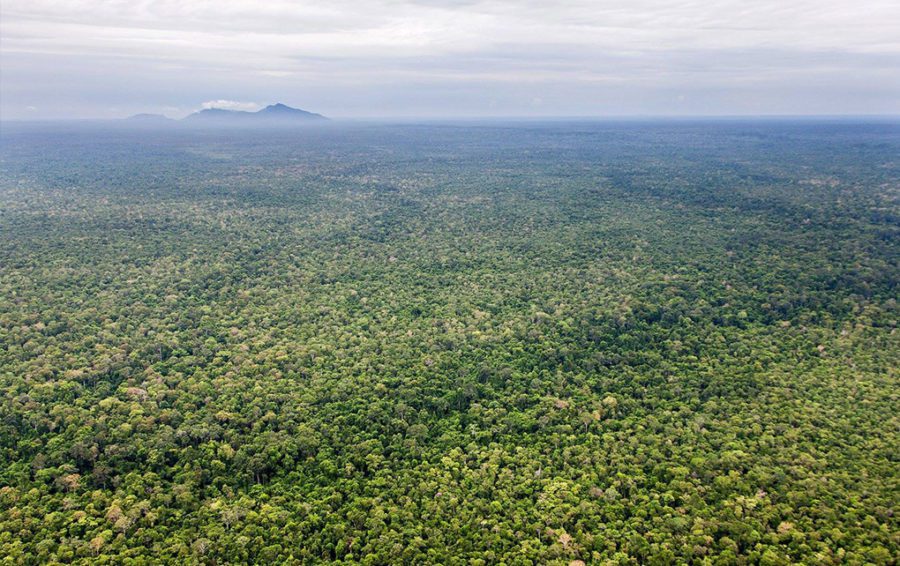Environmentalists protecting the Prey Lang forest expressed skepticism as the Environment Ministry pledged renewed commitments to conservation at the launch of a $21-million U.S.-funded consulting project for the sanctuary.
Speaking at the Raffles Le Royal hotel in Phnom Penh on Wednesday, ministry spokesman Sao Sopheap said the USAID “Greening Prey Lang” project was part of renewed efforts to preserve and protect the forest in the country’s north.
“Prey Lang is an important topic in Cambodia. Previously, its protection and conservation almost became a political issue,” Sopheap said. “The government has paid attention, and in this mandate we will continue to pay more attention to protection and conservation efforts for the whole of Prey Lang.”
The ministry would strengthen law enforcement and resolve all of the remaining issues related to the protection of Prey Lang, the spokesman added.
The Prey Lang Wildlife Sanctuary, covering more than 430,000 hectares in the provinces of Kratie, Kompong Thom, Preah Vihear and Stung Treng, has been beset by illegal logging. Community volunteers have attempted to patrol the sanctuary but say local authorities have been less than cooperative.
In 2017, the government passed regulations requiring the volunteer forest patrollers to inform authorities three days in advance of any planned patrols, leading to suspicions that officials were tipping off illegal loggers.
Srey Thei, a prominent representative of the Prey Lang Community Network, said he failed to see how the ministry’s stated commitment would be any different from its previous pledges. He said the Prey Lang communities had little hope.
“No matter what he claims, there’s no effect. I’ve seen many unreasonable things in that area. Some officials are colluding and letting crimes happen,” Thei said.
Officials and loggers “get along with with each other,” he added. “The transport of wood happens daily — both day and night, nonstop.”
The USAID project will be run by the California-based consultancy Tetra Tech and will cost about $21 million over five years. The company will “provide technical assistance to beneficiaries who depend on water, the clean air, food security, and biodiversity provided by the landscape,” an official pamphlet says.
The project will cooperate with the Environment Ministry as well as Conservation International and the Wildlife Conservation Society, striving to take “a multi-stakeholder, collaborative approach to achieve sustainable, mutually beneficial co-development that leverages private sector investment,” it says.
Seng Sokheng, an organizer for the Community Peace-Building Network, said that he welcomed the ministry’s stated goals of strengthening law enforcement. But he said he doubted that the $21-million project would have an impact.
To stop forestry crimes, the government needed to find a real will to stamp out official corruption that allows such crimes, he said, and implement the law.
“Based on our investigations and monitoring of the actual local situation, it will be difficult,” Sokheng said, casting doubt on the value of the project. “I regard the commitments as being impossible to fulfill, or only in a very small part.”
(Translated from the original in Khmer)













